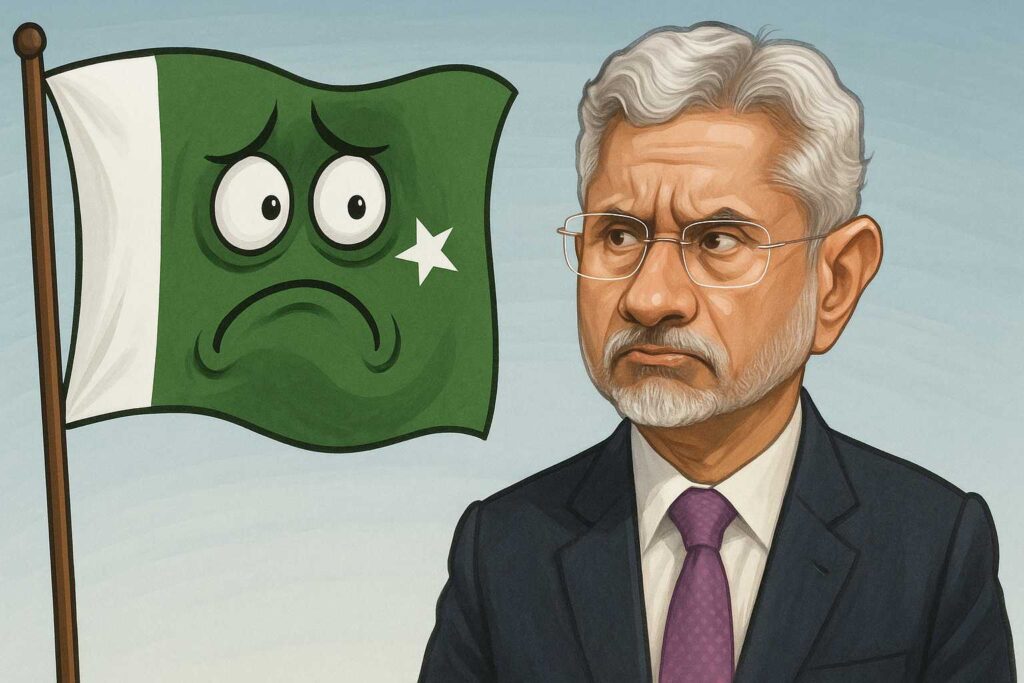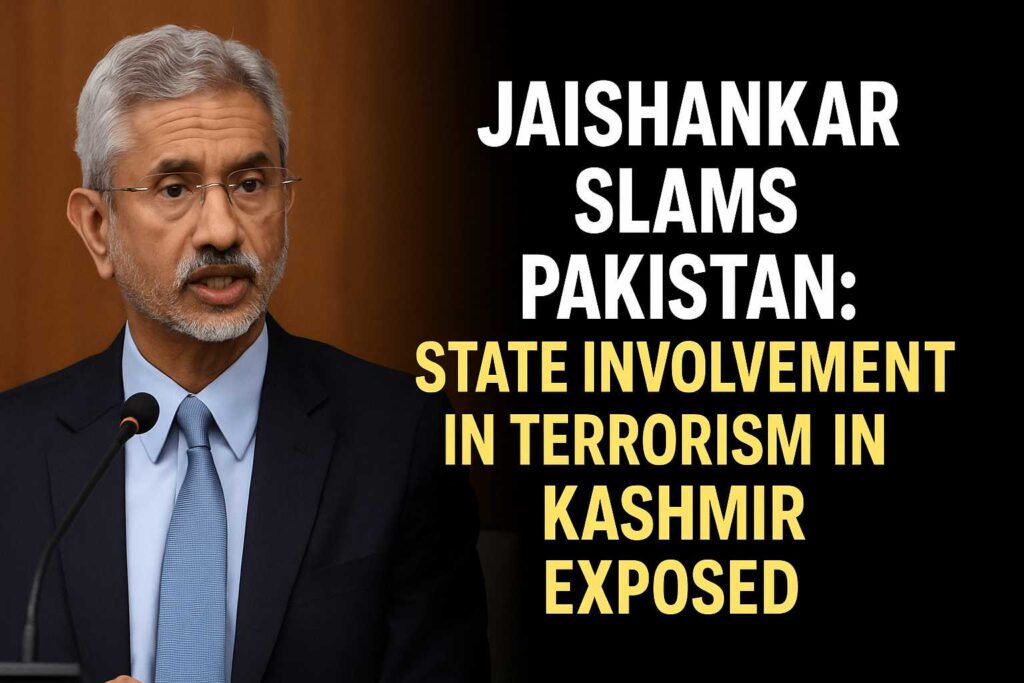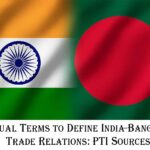The Kashmir problem has been a longstanding issue between India and Pakistan, and terrorism has been one of the most sensitive and risky aspects of the conflict. On May 22, 2025, Jaishankar slams Pakistan in a powerful statement, making it very clear that the neighbouring country is not only sheltering terrorists but that its state apparatus and military are “up to their neck” in sponsoring terror activities in Kashmir. His remarks have once again highlighted the deep-rooted involvement of Pakistan in cross-border terrorism, especially in the context of the recent attacks in Jammu and Kashmir.
This was said in the wake of the ghastly terrorist strike in Pahalgam, Jammu and Kashmir, where 26 innocent civilians were killed. Jaishankar also vehemently condemned Pakistan’s direct involvement in these kinds of actions, calling on the global community to recognize Pakistan’s responsibility.
What Did Jaishankar Say?
During his speech, Jaishankar slams Pakistan with a direct and bold accusation, openly stating that the Pakistani state and the army were deeply engaged in masterminding and backing terrorism in Kashmir. His words were, “Of course, the state involved is closely involved, army up to neck in it.” This wasn’t an act of politics but a strong, evidence-backed claim based on intelligence gathered by Indian agencies, reaffirming India’s long-standing concerns about Pakistan’s role in cross-border terrorism.
He also attributed the Pahalgam terror attack to the “extreme religious mindset” of Pakistan Army Chief General Asim Munir, who instills hate and violence against Indian minorities and civilians, particularly in Kashmir.
Why Is This Statement Important?
This strong stance by Jaishankar has multiple implications:
- It exposes Pakistan’s misuse of its military and government resources to support terror groups targeting Indian civilians.
- It challenges the narrative that terrorism in Kashmir is an internal issue, emphasizing cross-border state-sponsored terrorism.
- It strengthens India’s diplomatic position globally by providing clear evidence of Pakistan’s role.
- It highlights the need for a sustained and coordinated international response to terrorism originating from Pakistan.
Pakistan’s History of Terrorism in Kashmir
Jaishankar slams Pakistan for its long-standing support to terror outfits such as Jaish-e-Mohammed (JeM), Lashkar-e-Taiba (LeT), and Hizbul Mujahideen, which actively operate in Kashmir with the sole purpose of destabilizing the region. For years, Pakistan has been blamed for nurturing these terror groups that have carried out multiple deadly attacks on Indian security forces and civilians, spreading fear and obstructing peace in the Valley.
Even in the face of global pressure, Pakistan has not moved aggressively against these organizations, routinely making use of them as proxy warfare tools. Jaishankar’s remarks justify India’s longtime allegations against Pakistan’s military establishment’s involvement.

Impact on Indo-Pak Relations
Jaishankar slams Pakistan at a time when Indo-Pak relations are already highly strained due to ongoing cross-border firing, frequent ceasefire violations, and unresolved Kashmir issues. His statement serves as a clear indicator of India’s unwavering determination to stand firm against terrorism and its far-reaching aftershocks, sending a strong message both to Pakistan and the international community.
India has also put on hold the Indus Waters Treaty, an important water-sharing treaty with Pakistan, until Pakistan abandons terrorism. The decision is an indication of India’s determination to employ all diplomatic and economic means to put pressure on Pakistan.
What Does This Mean for Kashmir?
The Kashmir valley has been largely affected by terrorism and militancy. Terror attacks not only result in loss of lives, but they also hamper routine life, education, and tourism — one of the primary economies of Kashmir.
By targeting Pakistan’s state and military, Jaishankar emphasizes the outside intervention in Kashmir’s affairs, which thwart efforts for peace. The message of India is unambiguous: terrorism shall not be accepted, and Pakistan’s role will be exposed and rebutted at all levels.
International Reactions and Support
In the wake of the powerful moment when Jaishankar slams Pakistan, several nations and global institutions have reaffirmed their solidarity with India’s war against terrorism. World powers now clearly recognize the growing menace of state-sponsored terror and have urged Pakistan to take concrete and verifiable steps to dismantle its terror infrastructure. Jaishankar’s remarks have not only drawn global attention but also intensified international pressure on Pakistan to act responsibly.
India is also convening friends in order to put maximum pressure on Pakistan diplomatically and economically and to bring an end to terror as an instrument of foreign policy.
Conclusion: A Firm Message to Pakistan
When Jaishankar slams Pakistan with his bold statement — “state involved, army up to neck in it” — it sends a powerful message not just to Pakistan but to the entire global community. His words underline that terrorism in Kashmir is far from a local or internal matter; it is a serious cross-border threat directly driven by Pakistan’s government and military.
Jaishankar slams Pakistan while reinforcing India’s unwavering position: peace and long-term security in the region are impossible unless Pakistan puts a complete stop to its support for terrorism. India has made it clear that until Pakistan takes meaningful action against terror networks, the nation will continue to safeguard its citizens and sovereignty — through diplomatic pressure, economic steps, and, if required, military action.



